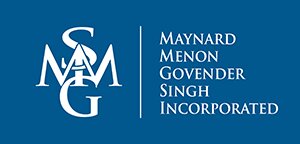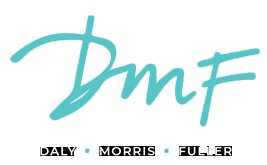Best Whistleblower & Qui Tam Lawyers in Westville
Share your needs with us, get contacted by law firms.
Free. Takes 2 min.
List of the best lawyers in Westville, South Africa
About Whistleblower & Qui Tam Law in Westville, South Africa
Whistleblower and Qui Tam laws are designed to protect individuals who report unlawful activities, corruption, fraud, or misconduct within organizations, especially when these actions affect public interest or involve government funds. In Westville, South Africa, whistleblower law is governed mainly by the Protected Disclosures Act and various anti-corruption frameworks. While South Africa does not have a direct "Qui Tam" statute similar to those in some other countries, provisions do exist that allow individuals to report wrongdoing and, in some cases, participate in legal proceedings against wrongdoers. Understanding your rights and protections is crucial if you are considering exposing misconduct within an organization.
Why You May Need a Lawyer
Seeking legal advice in whistleblower and Qui Tam matters can be essential in several situations:
- You have evidence of corruption, fraud, or misconduct within your workplace or a public institution.
- You are facing retaliation, harassment, or unfair dismissal as a result of raising concerns or making disclosures about wrongdoing.
- You are unsure of the steps required to make a legally protected disclosure and wish to safeguard yourself from legal or professional harm.
- You are considering participating in legal action against an organization that has engaged in fraud against the government or public.
- You want to understand the potential risks and protections before reporting misconduct.
Local Laws Overview
In Westville, and South Africa as a whole, several key laws govern the field of whistleblower protection and reporting of wrongdoing:
- Protected Disclosures Act (PDA) 26 of 2000: This act protects employees who make disclosures about unlawful or unethical conduct in the workplace. It prohibits employers from subjecting whistleblowers to occupational detriment.
- Prevention and Combating of Corrupt Activities Act (PCCAA) 12 of 2004: This law establishes a duty on certain individuals to report corrupt transactions and provides for penalties for failure to do so.
- Labour Relations Act: Offers general protections against unfair dismissal, including for employees dismissed because of blowing the whistle.
- Public Finance Management Act and Municipal Finance Management Act: Focus on the proper use and protection of public funds, including reporting fraud or theft involving these funds.
Frequently Asked Questions
What is a whistleblower?
A whistleblower is a person who exposes information or activity within a private, public, or government organization that is deemed illegal, unethical, or not correct, often relating to fraud, corruption, or health and safety violations.
Does South Africa have Qui Tam laws?
South Africa does not have a "Qui Tam" statute that allows whistleblowers to share directly in any recovery, as is the case in the United States. However, whistleblowers do have legal protections, and certain laws encourage reporting of corrupt activities.
Can I remain anonymous when making a disclosure?
Yes, it is possible to make an anonymous disclosure, but remaining anonymous throughout the process can be challenging. Legal advice can help you understand your options and risks.
Am I protected from dismissal if I become a whistleblower?
Yes, under the Protected Disclosures Act, employers are prohibited from dismissing someone as a result of a protected disclosure. Protections also exist under the Labour Relations Act.
What should I do if I experience retaliation for blowing the whistle?
You should consult with a lawyer immediately. Keep thorough records of the retaliation and any actions taken by your employer, as this documentation will be important in any legal proceedings.
How do I make a protected disclosure?
A protected disclosure usually requires reporting the wrongdoing to the appropriate legal or regulatory authority, or in some cases, your employer, in good faith and according to prescribed procedures.
What types of wrongdoing are covered under whistleblower protections?
Protections generally cover disclosures about criminal offenses, failure to comply with legal obligations, miscarriages of justice, health and safety dangers, environmental damage, and corruption or fraud.
Is there a risk that my identity will be revealed?
While every effort is made to protect your identity, there is always some risk. Legal guidance can help minimize these risks and ensure your disclosure is as secure as possible.
Can I receive a reward for reporting fraud or corruption?
Currently, South Africa does not guarantee a monetary reward for whistleblowers. The focus is mainly on protection rather than financial incentives.
What if my employer ignores my concerns?
If your employer does not act on your concerns, you may be able to report the matter to relevant authorities. Engaging a lawyer can ensure you follow the law and safeguard your rights.
Additional Resources
Several organizations and governmental bodies can provide support and advice to those considering making disclosures or seeking redress:
- Public Protector South Africa - Investigates improper conduct in state affairs and can protect whistleblowers.
- Corruption Watch - A non-profit organization that encourages reporting of corruption.
- South African Human Rights Commission - Receives complaints regarding human rights abuses, including those related to whistleblowing.
- Department of Labour - Assists with unfair dismissal and workplace grievances.
- Special Investigating Unit (SIU) - A government unit focused on investigating corruption in state institutions.
- Legal Aid South Africa - Provides free legal services if you cannot afford a lawyer.
Next Steps
If you believe you need legal assistance regarding whistleblower or Qui Tam matters in Westville, South Africa, consider the following steps:
- Seek a confidential consultation with a legal professional experienced in whistleblower and employment law.
- Gather and securely store all evidence related to your claim, including emails, documents, or records of conversations.
- Review the procedures for making a protected disclosure under relevant laws and determine the best reporting channel.
- If at risk of retaliation, document any adverse actions taken and alert your lawyer immediately.
- Contact relevant authorities or support organizations for advice and potential assistance, especially if you feel your safety is at risk.
Lawzana helps you find the best lawyers and law firms in Westville through a curated and pre-screened list of qualified legal professionals. Our platform offers rankings and detailed profiles of attorneys and law firms, allowing you to compare based on practice areas, including Whistleblower & Qui Tam, experience, and client feedback.
Each profile includes a description of the firm's areas of practice, client reviews, team members and partners, year of establishment, spoken languages, office locations, contact information, social media presence, and any published articles or resources. Most firms on our platform speak English and are experienced in both local and international legal matters.
Get a quote from top-rated law firms in Westville, South Africa — quickly, securely, and without unnecessary hassle.
Disclaimer:
The information provided on this page is for general informational purposes only and does not constitute legal advice. While we strive to ensure the accuracy and relevance of the content, legal information may change over time, and interpretations of the law can vary. You should always consult with a qualified legal professional for advice specific to your situation.
We disclaim all liability for actions taken or not taken based on the content of this page. If you believe any information is incorrect or outdated, please contact us, and we will review and update it where appropriate.










